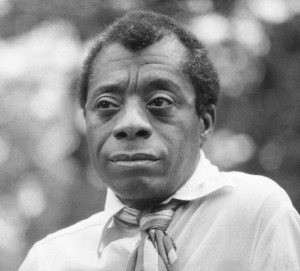Pride Month: James Baldwin
Monday, June 7th, 2021June is LGBTQ+ Pride Month. All month long, Behind the Headlines will feature LGBTQ+ pioneers in a variety of areas.
The Black novelist, essayist, and playwright James Baldwin (1924-1987) has gained fame for his works about racial injustice and sexual identity. Baldwin was born in the United States, but he lived much of his life in France. Whether writing in the United States or abroad, he offered fiery protests against racial inequality.
Baldwin promoted civil rights and encouraged people to accept social differences in several powerful essay collections. These include Notes of a Native Son (1955), Nobody Knows My Name (1961), The Fire Next Time (1963), No Name in the Street (1972), and The Devil Finds Work (1976). These five collections and other nonfiction pieces were compiled in The Price of the Ticket (1985).
Baldwin also explored interracial conflict in his fiction and drama, including the novel Another Country (1962), the play Blues for Mister Charlie (1964), and the short-story collection Going to Meet the Man (1965). In his novel Tell Me How Long the Train’s Been Gone (1968), Baldwin presented his most detailed portrayal of civil rights activities during the 1960′s.
James Arthur Baldwin was born on Aug. 2, 1924, in the Harlem district of New York City. He was a minister as a teenager, and many of his works use the rich language and tone of Biblical scripture, Black sermons, and gospel and blues music. His early writings explore the characters’ psychological struggles with their religious faith and relationships. His first novel, Go Tell It on the Mountain (1953), and first play, The Amen Corner (1955), portray tensions within Black families and churches. Baldwin explored the subject of homosexuality in his second novel, Giovanni’s Room (1956), and in other works of fiction.
Baldwin’s other works include the novels If Beale Street Could Talk (1974) and Just Above My Head (1979). A motion picture adaptation of If Beale Street Could Talk was released in 2018. Baldwin also wrote poetry and nonfiction with other writers and civil rights activists. He wrote one children’s book, Little Man, Little Man, that portrays the world of a black child growing up in Harlem during the 1970′s. The book was originally published in 1976 and reissued in a new edition in 2018. His essays were gathered in Collected Essays (published by the Library of America in 1998) and The Cross of Redemption: Uncollected Writings (2010). The Library of America also published two volumes of Baldwin’s fiction, Early Novels & Stories (1998) and Later Novels (2015). Baldwin died on Dec. 1, 1987.



